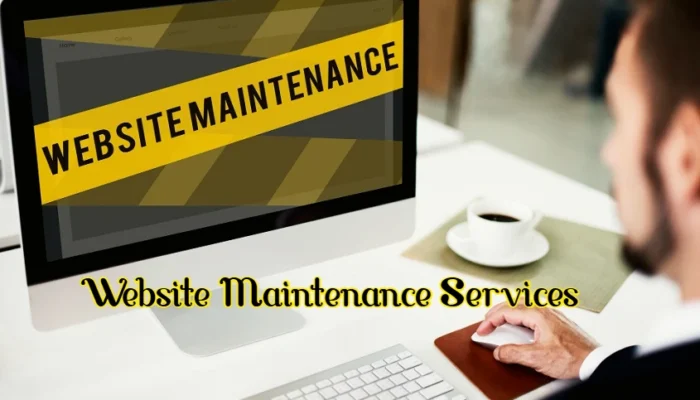
Creating a website is a major step in growing your presence online. But simply launching your site doesn’t mean the job is done. Just like your home or vehicle, a website needs ongoing care and attention. If you don’t maintain it regularly, small issues can build up and lead to much bigger problems—broken pages, outdated content, slow loading times, or worse—security breaches. That’s why website maintenance services are crucial.
In this article, we’ll go beyond generic definitions. We’ll talk about what maintenance actually looks like in the real world, how it helps your website stay strong, and what to expect whether you’re a solo blogger or a business owner running an eCommerce store.
Why Website Maintenance Isn’t Optional
Let’s imagine you have a retail store in town. Every week, you sweep the floors, restock products, fix the lights, and make sure everything looks appealing for your customers. If you ignored these things for a few months, what would happen? People would stop coming. The store would look messy or feel unsafe. The same applies to your website.
When you ignore regular upkeep, visitors start noticing broken links, outdated information, or painfully slow load speeds. They leave—and many never return. Worse, without updates and security patches, your site becomes an easy target for hackers.
Website maintenance service is not just about fixing things that are broken. It’s about preventing those issues from happening in the first place.
What’s Actually Included in Website Maintenance?
Here’s a closer look at what you or your provider should be doing on a routine basis:
Software & Plugin Updates
If your site runs on a content management system (CMS) like WordPress, keeping the core software and plugins updated is vital. Updates often include bug fixes, security patches, or performance improvements.
Ignoring them? That opens the door for hackers and glitches.
Security Checks & Malware Scans
A good maintenance plan includes regular scanning for vulnerabilities, monitoring suspicious activity, and protecting against brute-force login attempts. If you’re not checking this regularly, you may not even realize your site has been compromised.
Backups
Backing up your website—both the files and the database—is like having insurance. Whether it’s a hosting error or a malware attack, having a recent backup could save you hours or even days of lost work.
Speed Optimization
A slow website turns visitors away. Maintenance should involve compressing images, minimizing code, and clearing unnecessary data that might be slowing down your site.
Broken Link Checks
Over time, links get outdated or removed. Clicking a dead link can frustrate users and also hurt your SEO rankings. A proper maintenance process involves scanning and repairing these regularly.
Mobile & Browser Testing
Web browsers and devices change frequently. What worked perfectly on Chrome last month might not load properly on Safari this week. Regular testing helps keep your site accessible across all devices.
WordPress Website Maintenance Services: Why WordPress Needs Special Care

WordPress powers more than 40% of all websites today. It’s flexible, affordable, and user-friendly—but it’s also a frequent target for hackers.
Many WordPress users install dozens of plugins to enhance their site’s functionality. But with each plugin comes the risk of bugs, security holes, or compatibility issues.
That’s why WordPress website maintenance services need to go a step further. They involve:
- Regular plugin and theme updates (and conflict checks)
- Manual checks after each update to ensure the site is still running smoothly
- Spam comment removal
- Database optimization to keep things running quickly
- Keeping track of plugin licenses or subscriptions
If you’ve ever installed a plugin and your site suddenly “breaks,” it’s usually a conflict issue. Professionals know how to test safely, spot errors fast, and roll back if needed.
Website Hosting and Maintenance Services: A Smart Combo
Managing website hosting and maintenance separately can be a hassle. You have to talk to one company when the site goes down, and another when a plugin causes problems.
That’s why many businesses prefer to bundle these services together. Providers who offer website hosting and maintenance services take full responsibility for your site—top to bottom.
Here’s what you get when both services are under one roof:
- Fewer technical problems (and faster fixes when they do happen)
- Better coordination between server settings and website features
- Automatic backups and easy restoration
- Integrated security tools at both the server and site level
- One support team that handles it all
For busy business owners, this kind of bundled service removes a lot of stress. You don’t need to play middleman between your host and your developer. One team is accountable for everything.
How Often Should a Website Be Maintained?

The truth is: it depends.
For personal blogs or simple portfolio websites, monthly checkups may be enough. But for active business websites, especially eCommerce, weekly or even daily maintenance may be needed.
Here’s a rough timeline:
- Weekly Tasks: Run backups, check for updates, clear spam, review error logs
- Monthly Tasks: Test forms, check for broken links, review security settings
- Quarterly Tasks: Update website content, adjust SEO settings, test user experience
- Yearly Tasks: Renew SSL, domain, hosting plans; conduct a full audit of site structure and design
Sticking to this kind of schedule helps avoid emergency problems.
DIY Maintenance vs. Hiring a Pro
If you’re running a very basic website and have some technical skills, you might be able to handle maintenance yourself—at least the basics.
But once your site starts generating revenue or becomes important to your business, it’s worth hiring a professional.
Here’s why:
- Professionals catch small issues before they become major ones
- They understand how updates interact across your site
- They usually include premium tools (like malware scanners or uptime monitors) in their service
- If your site goes down, you won’t waste hours trying to fix it
The cost of professional website maintenance services is small compared to the cost of downtime or a hacked site.
What Should You Look for in a Maintenance Provider?
Choosing someone to handle your site isn’t just about technical skills. Look for someone who offers:
- Clear communication (no tech jargon overload)
- Regular reporting (you should know what’s being done)
- Reliable backups
- Hands-on security monitoring
- Experience with your CMS (especially if you use WordPress)
- Flexible plans that fit your site’s needs and growth
Some providers offer 24/7 support, which can be a lifesaver if your site crashes overnight.
Final Thoughts
A website is not a one-time project. It’s a living, evolving platform that needs regular attention to stay secure, fast, and functional.
With professional website maintenance services, you don’t just avoid problems—you create a better experience for your visitors, strengthen your brand’s online image, and improve your performance on search engines.
If your site runs on WordPress, investing in WordPress website maintenance services is essential to stay on top of plugin conflicts, security threats, and performance issues.
For ultimate peace of mind, consider choosing bundled website hosting and maintenance services. It simplifies support, speeds up response time, and gives you one team to handle it all.
Your website deserves more than a “set it and forget it” approach. With the right care, it can become your most powerful business asset.
